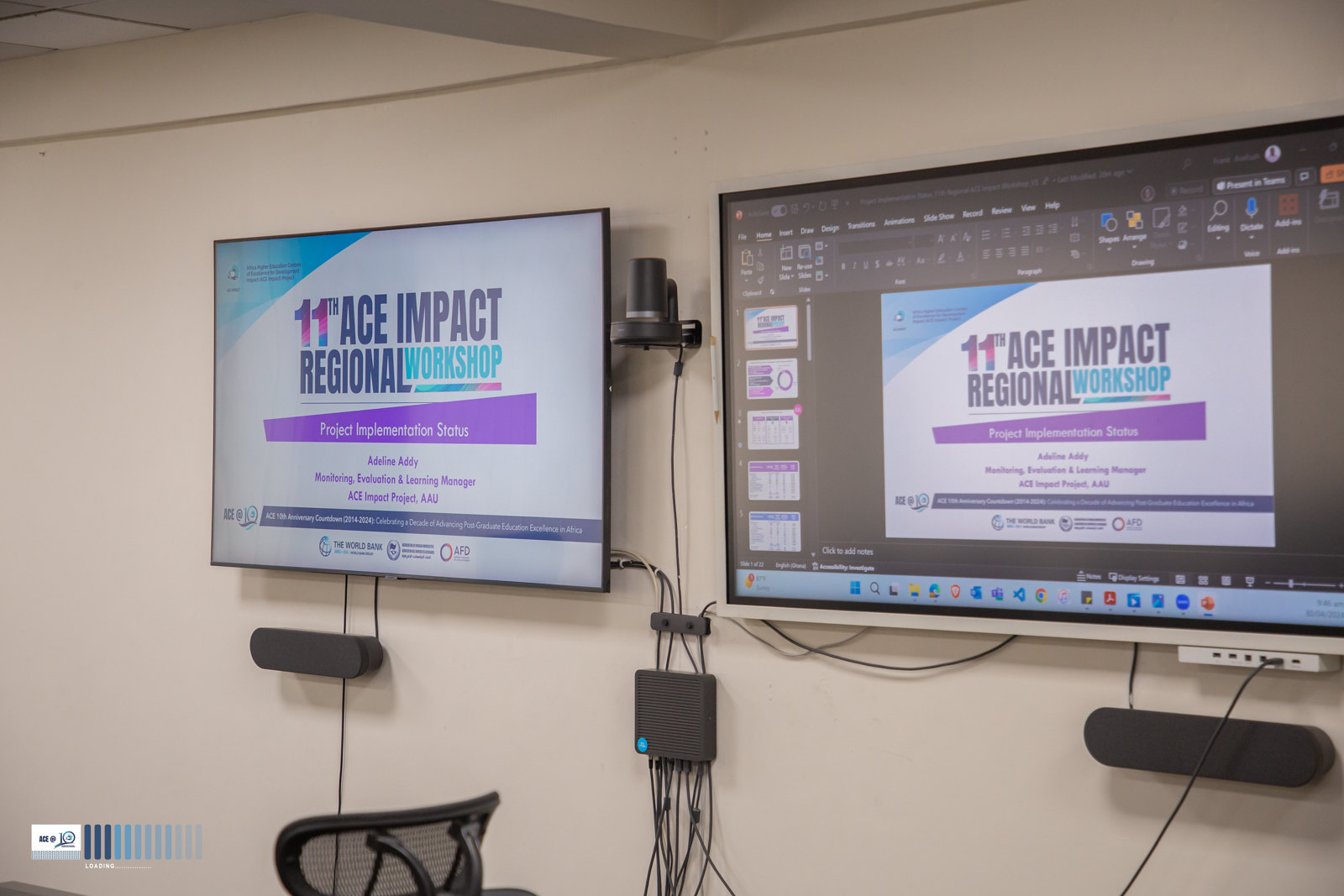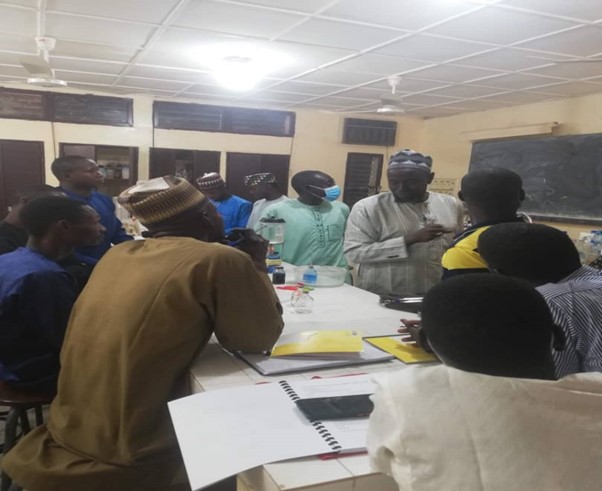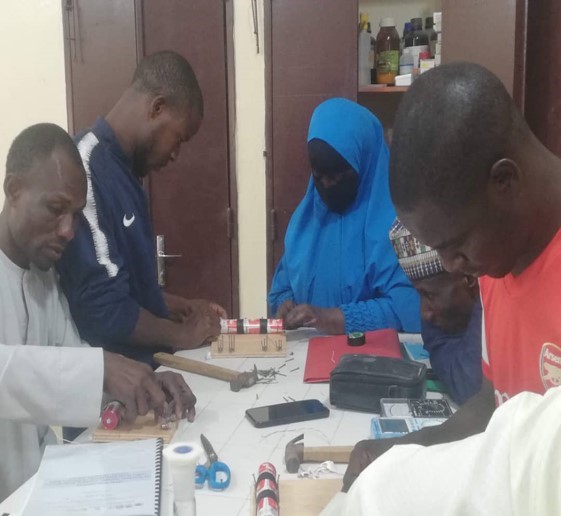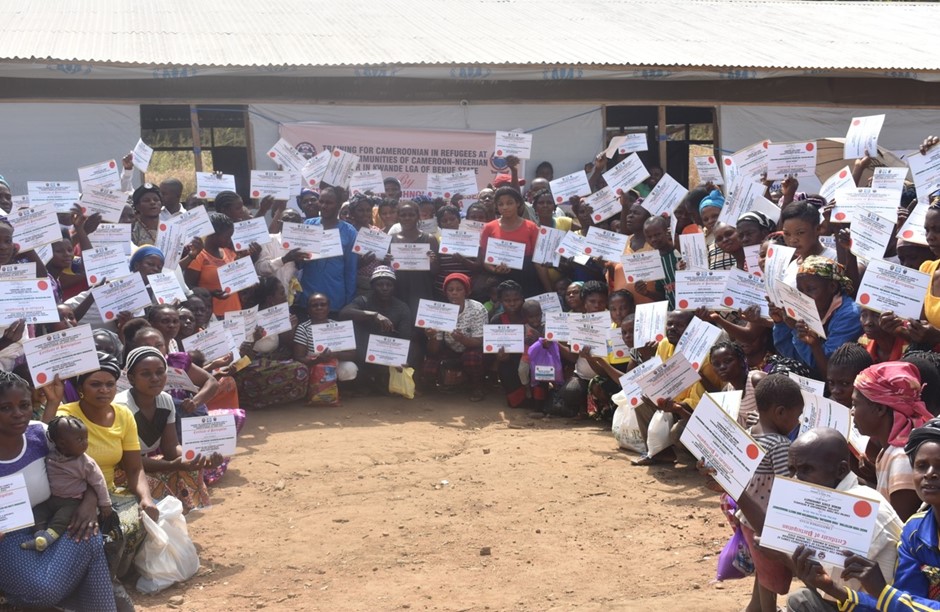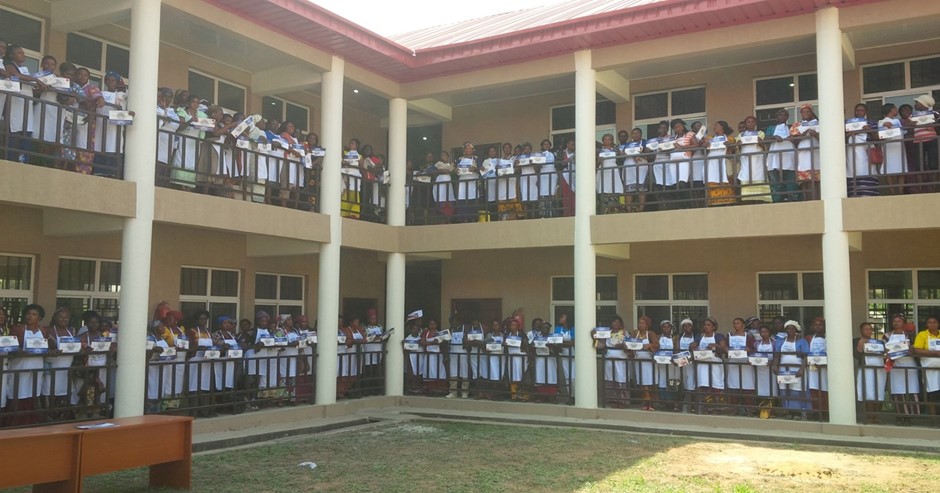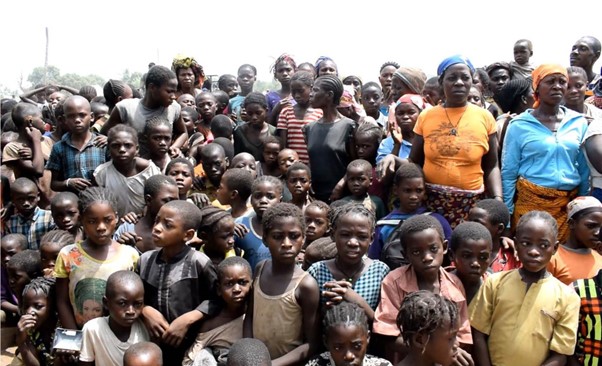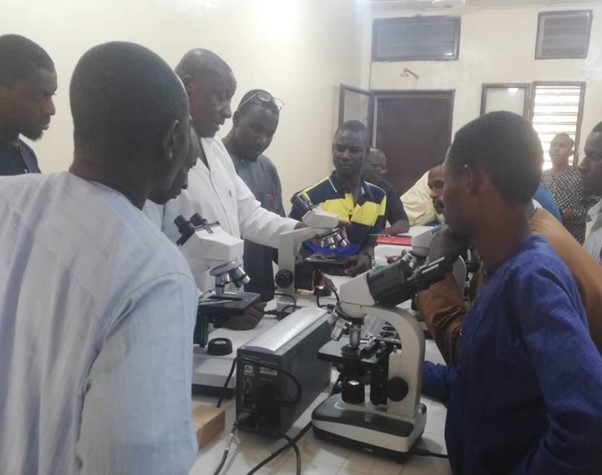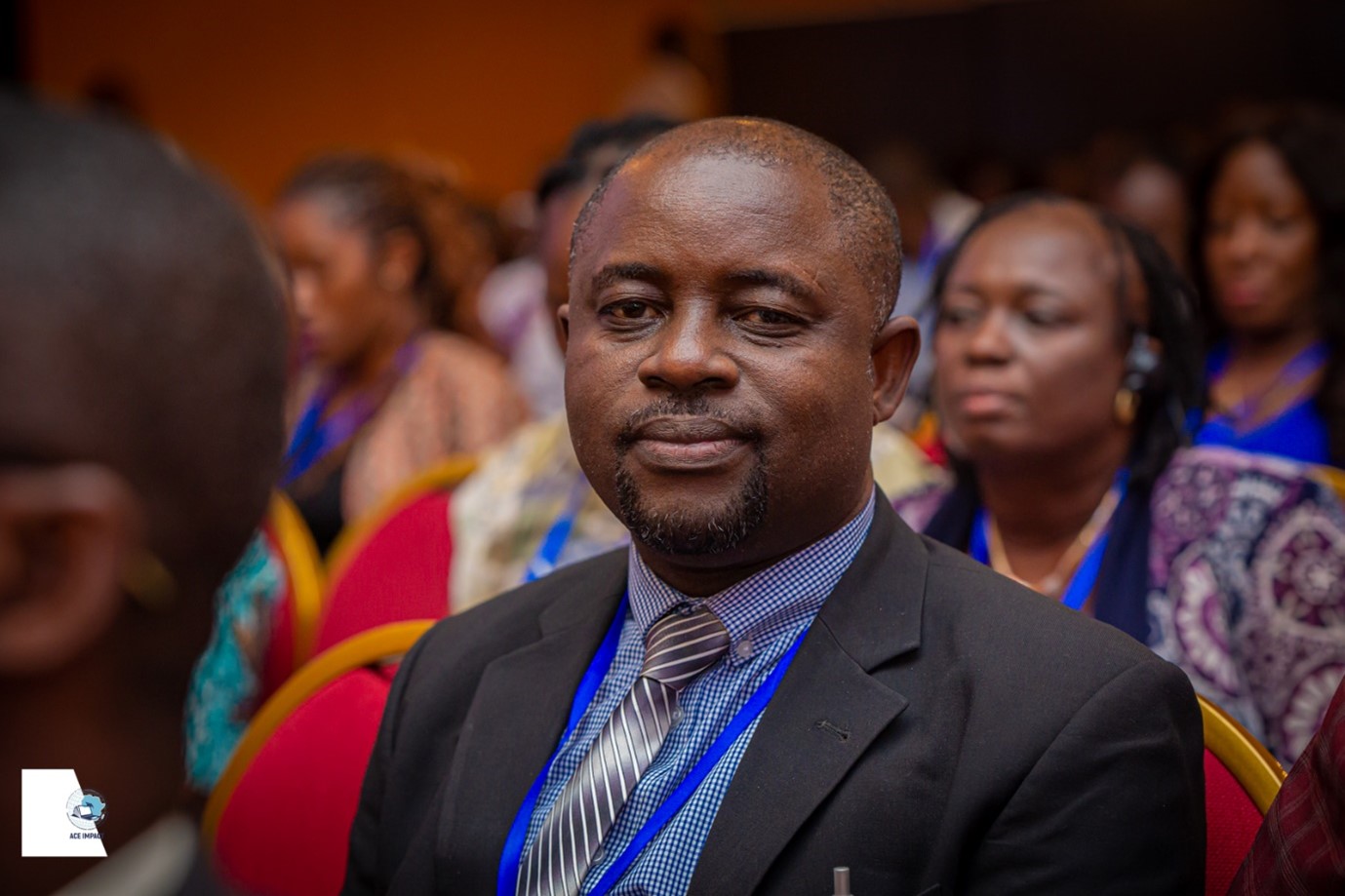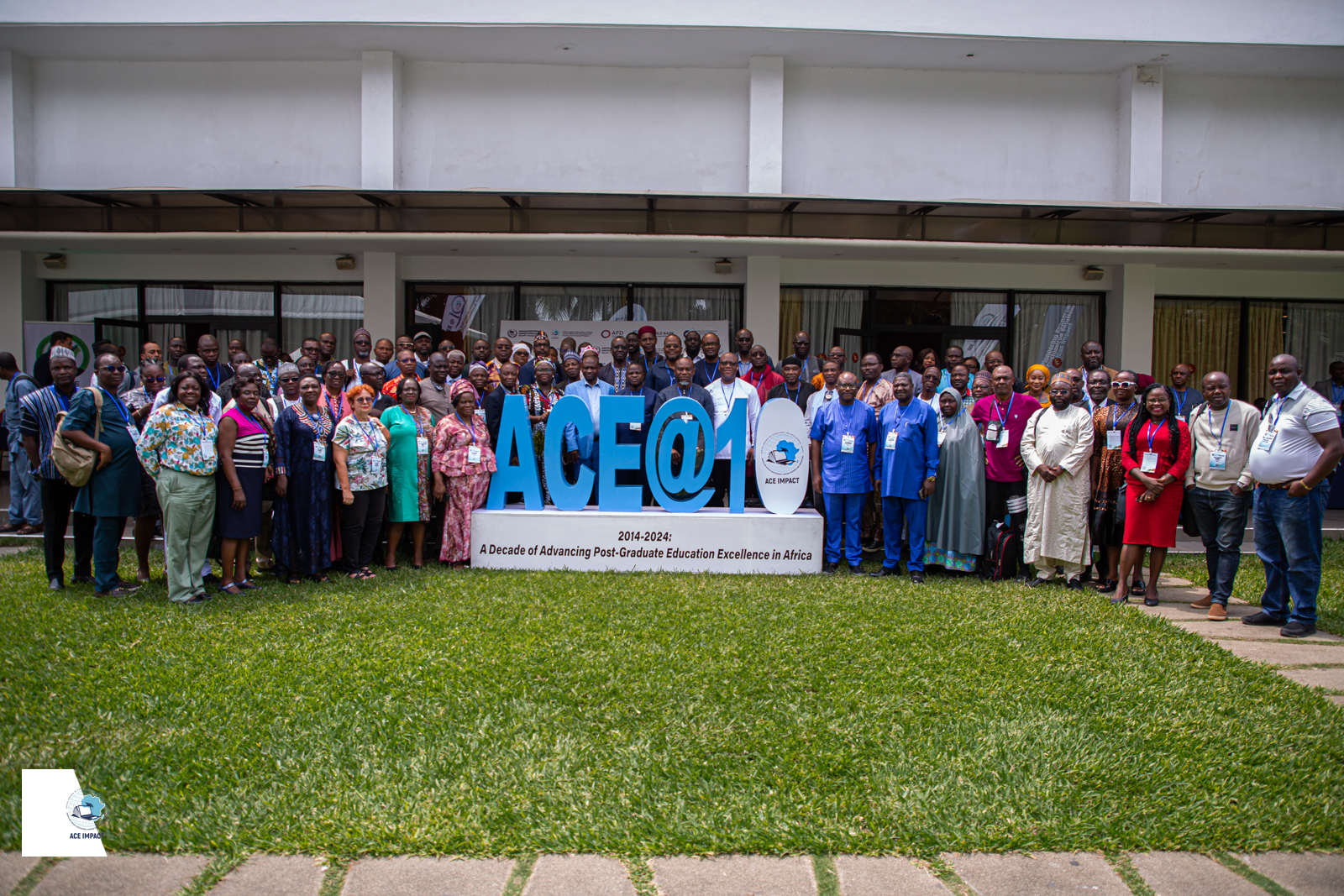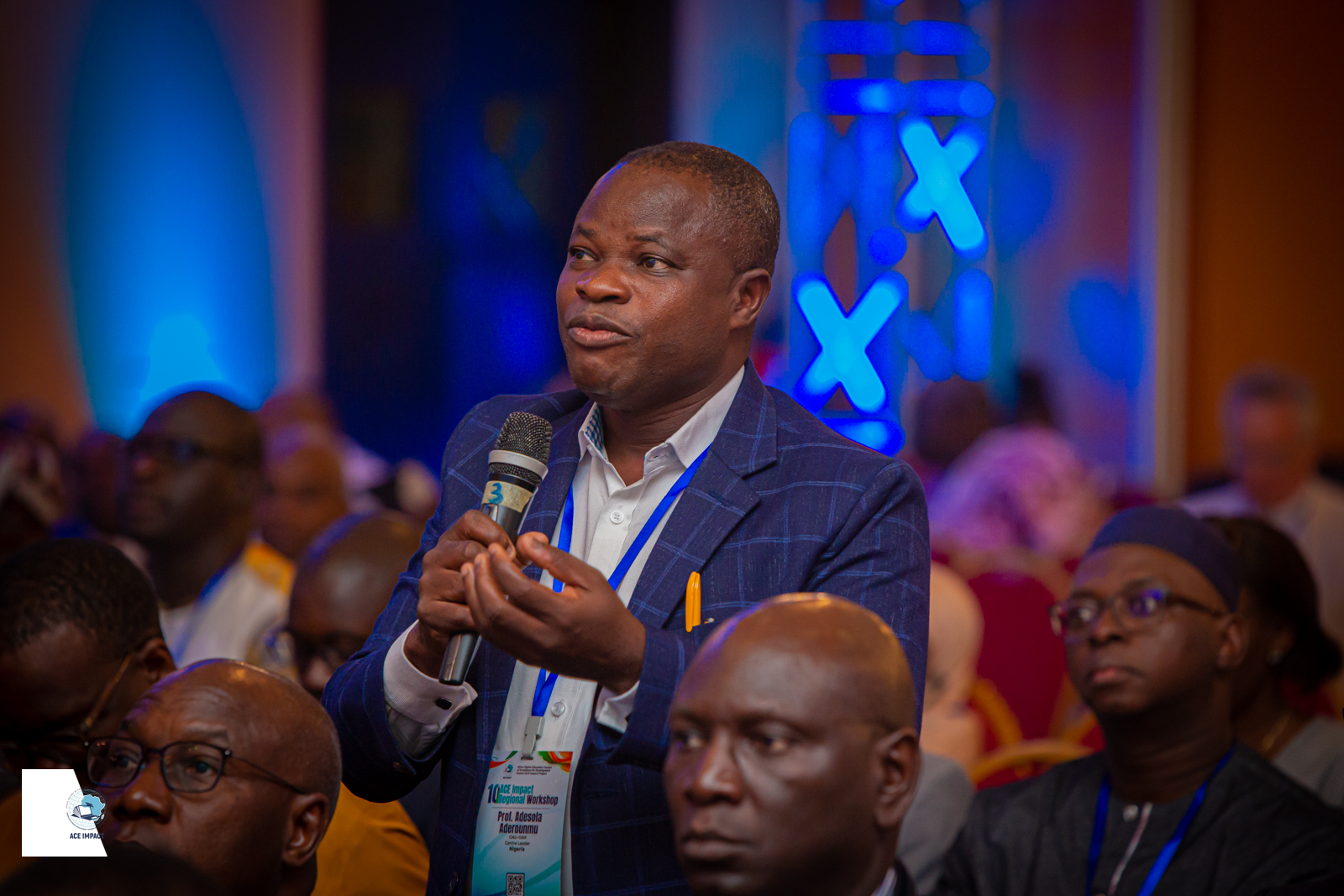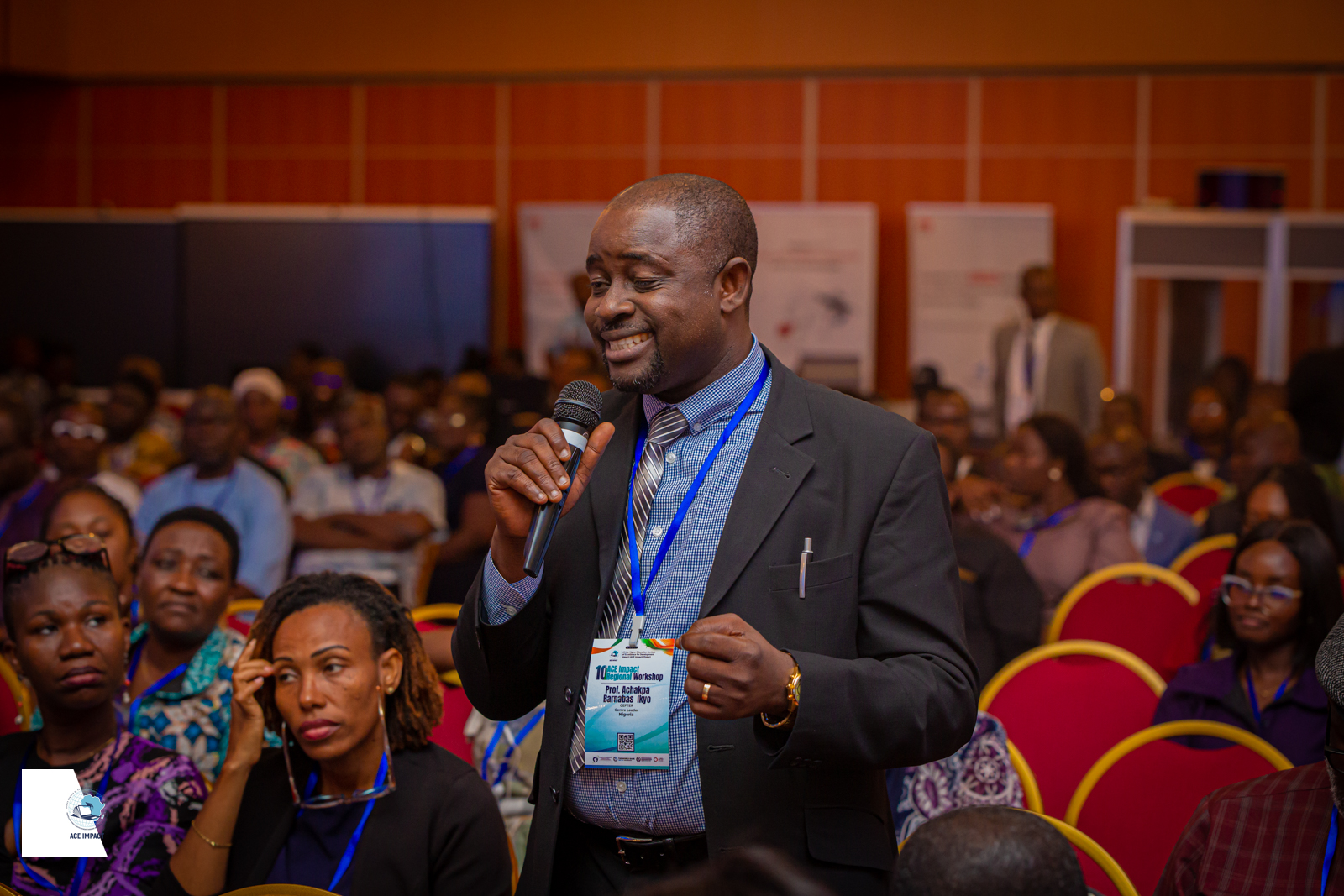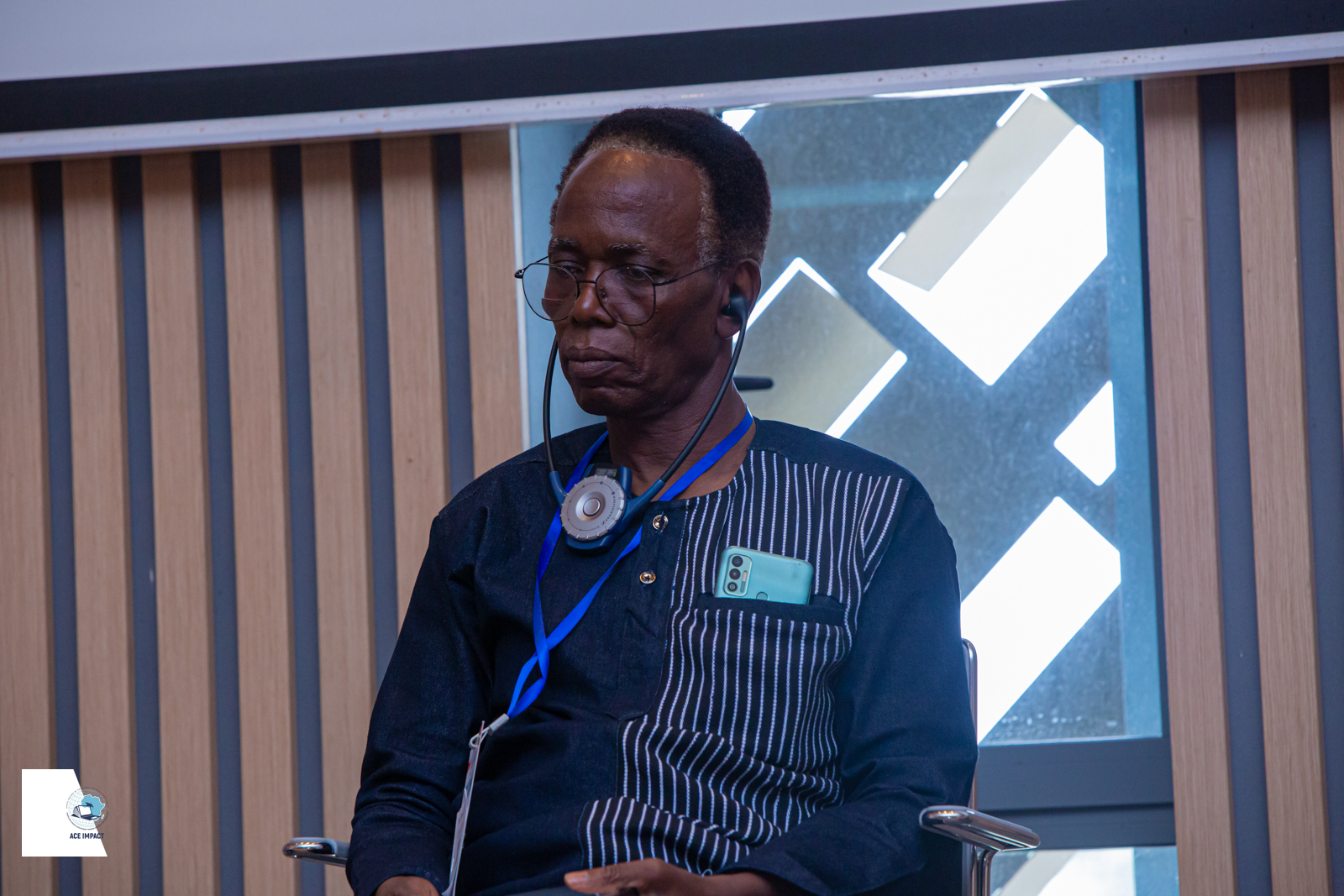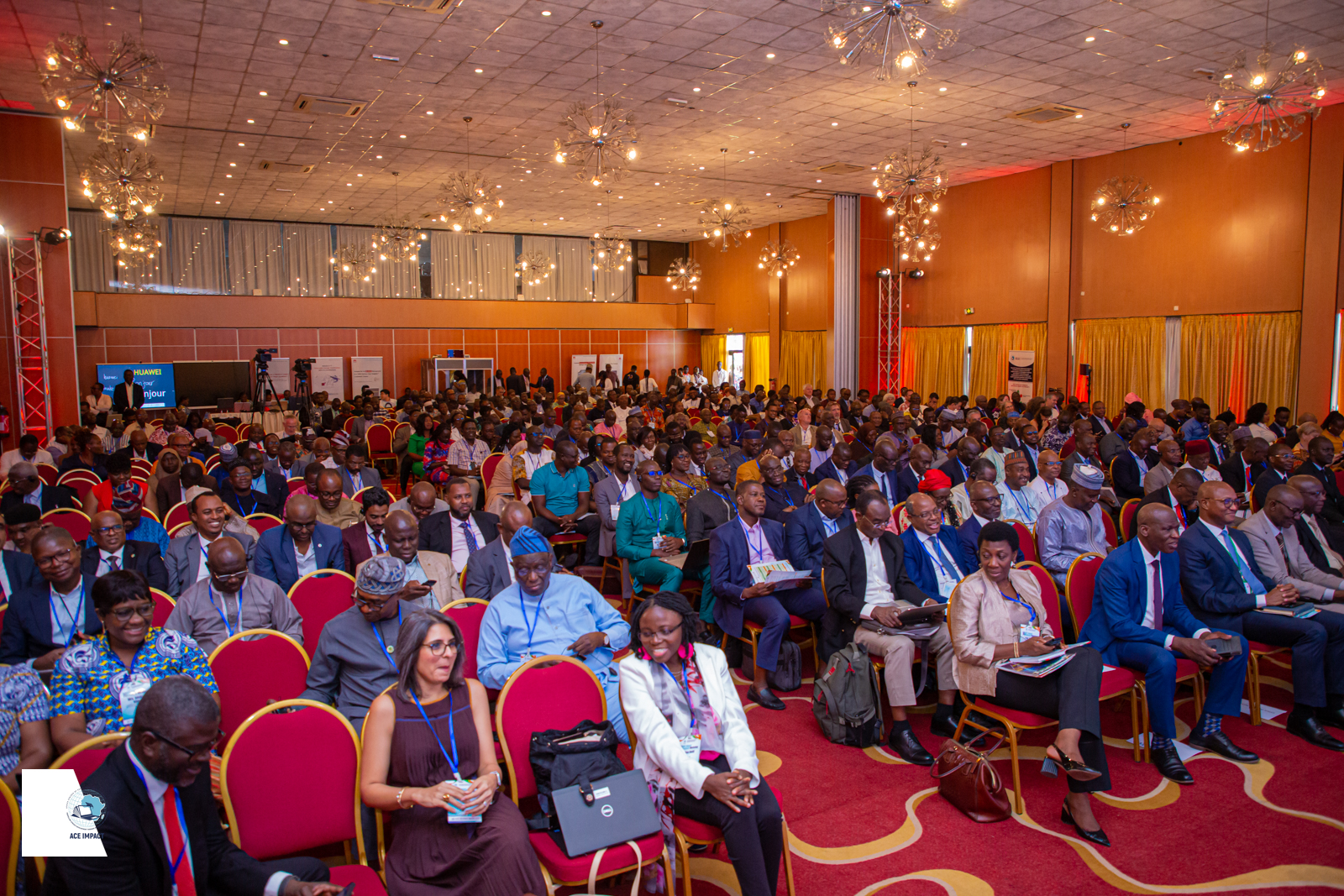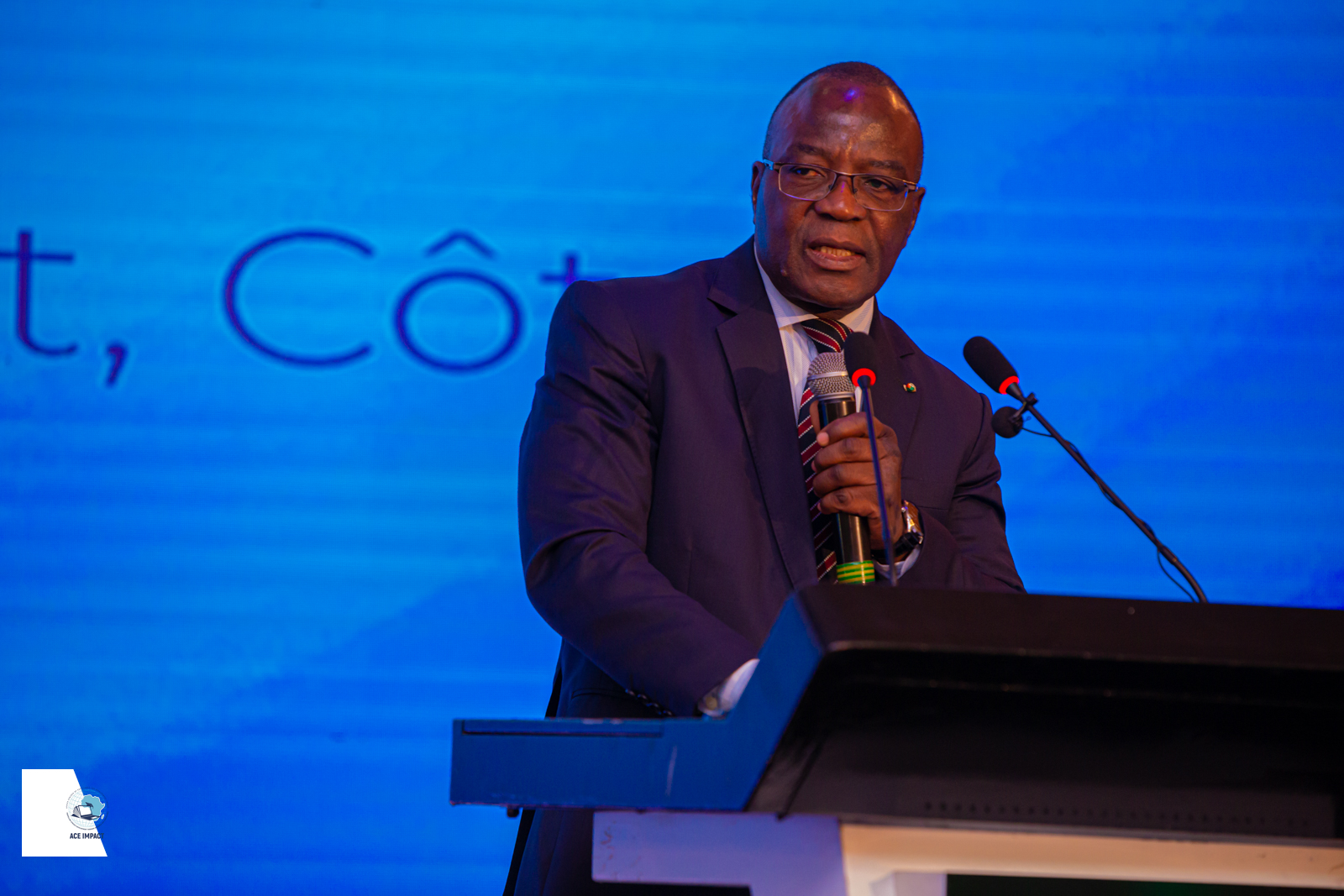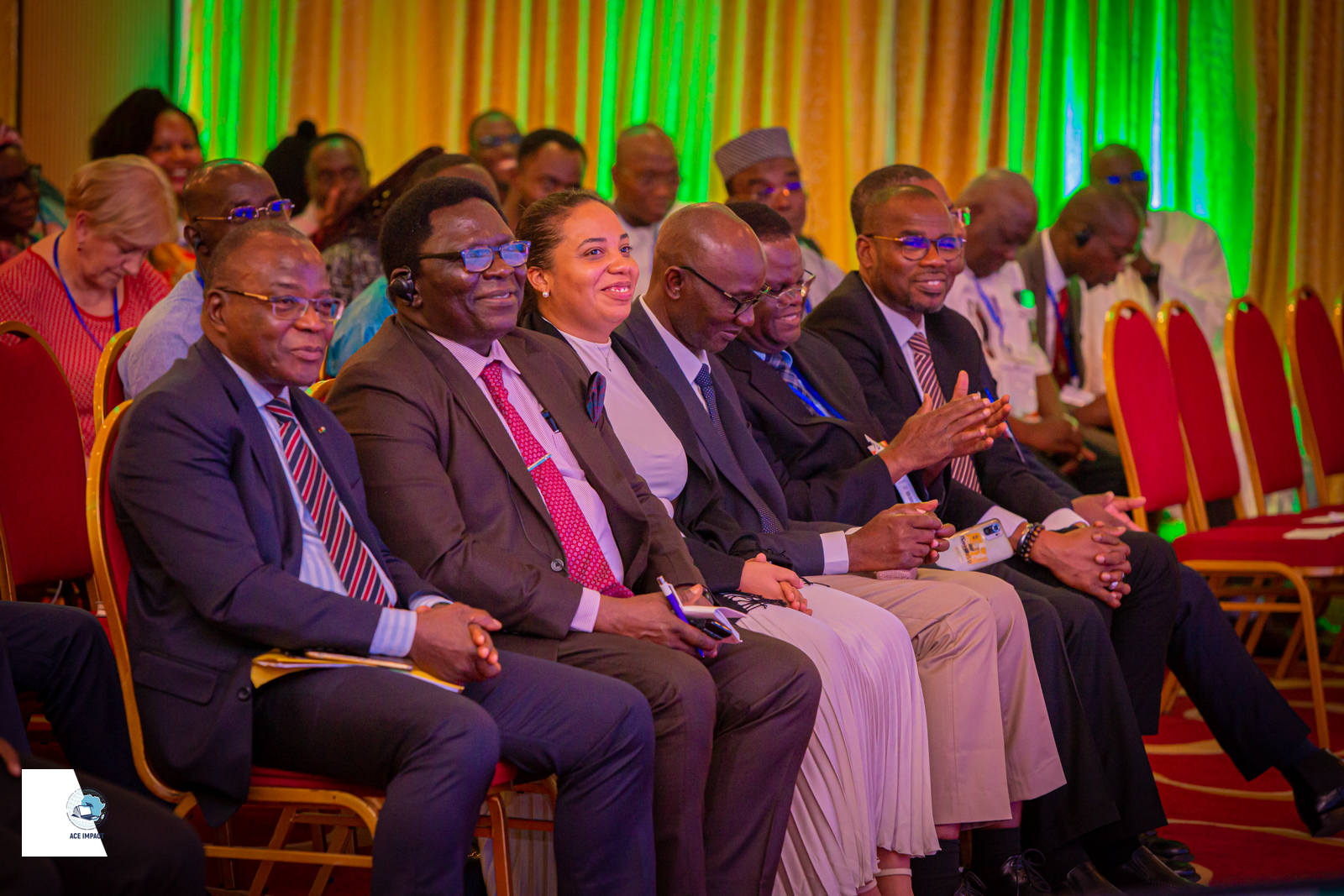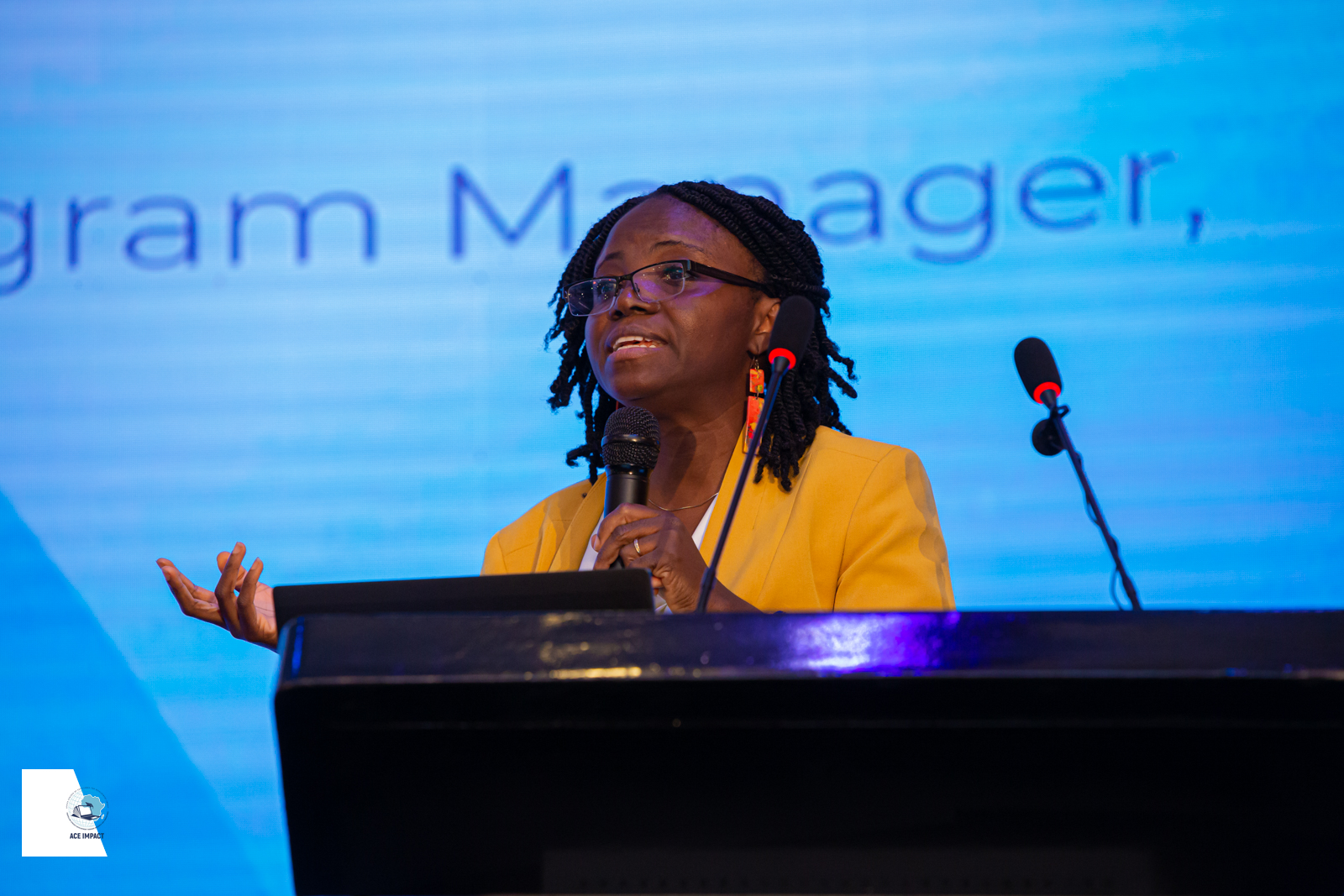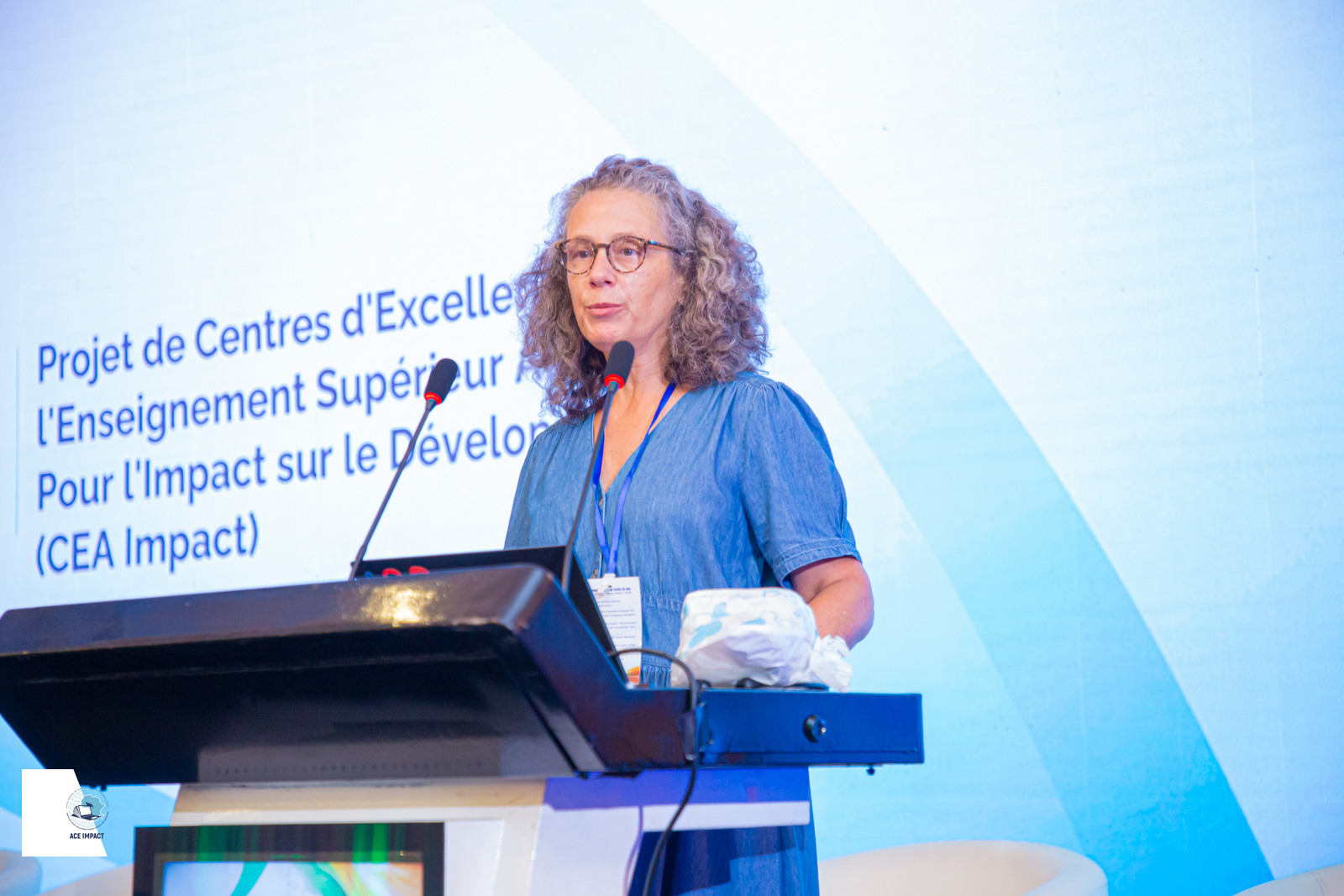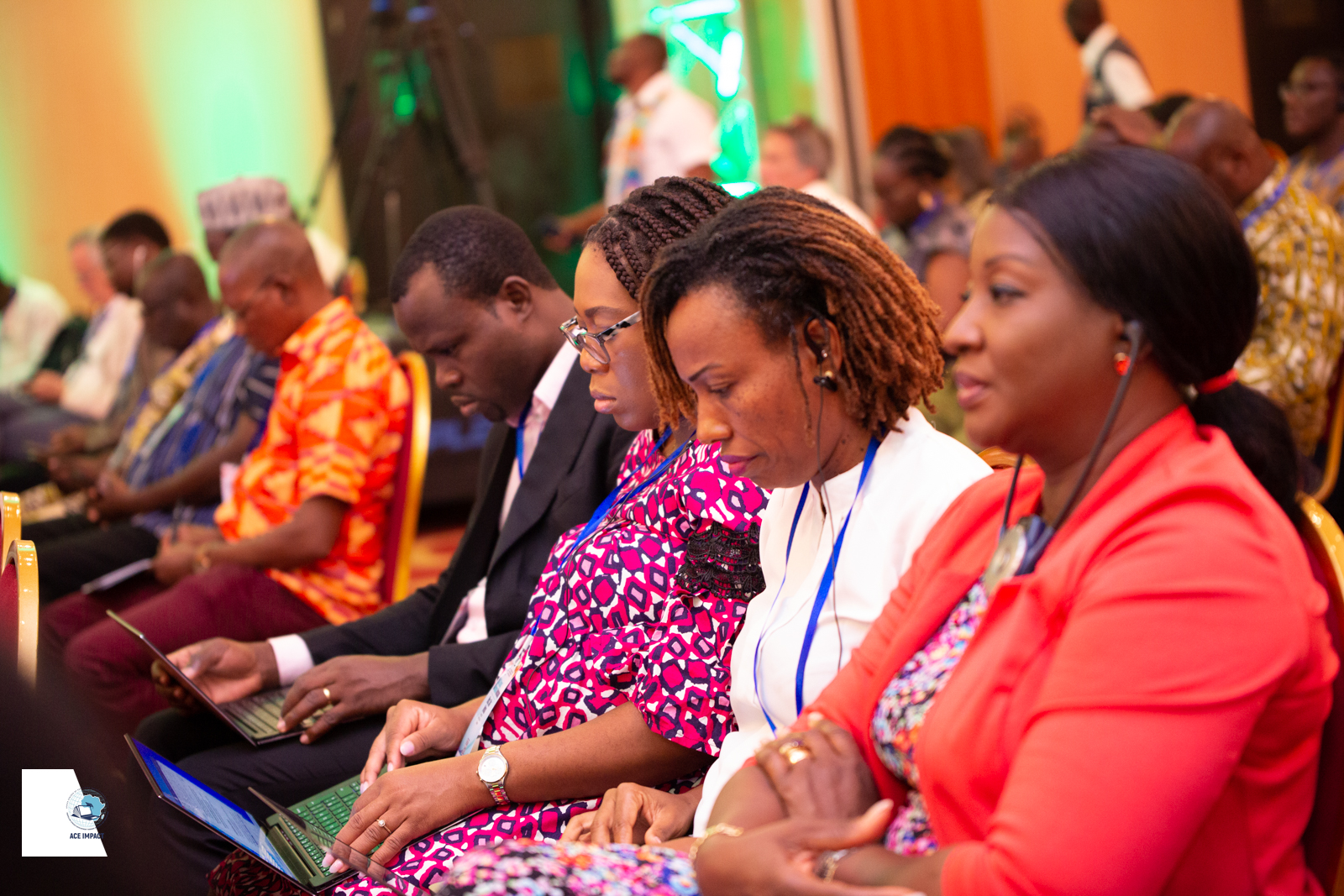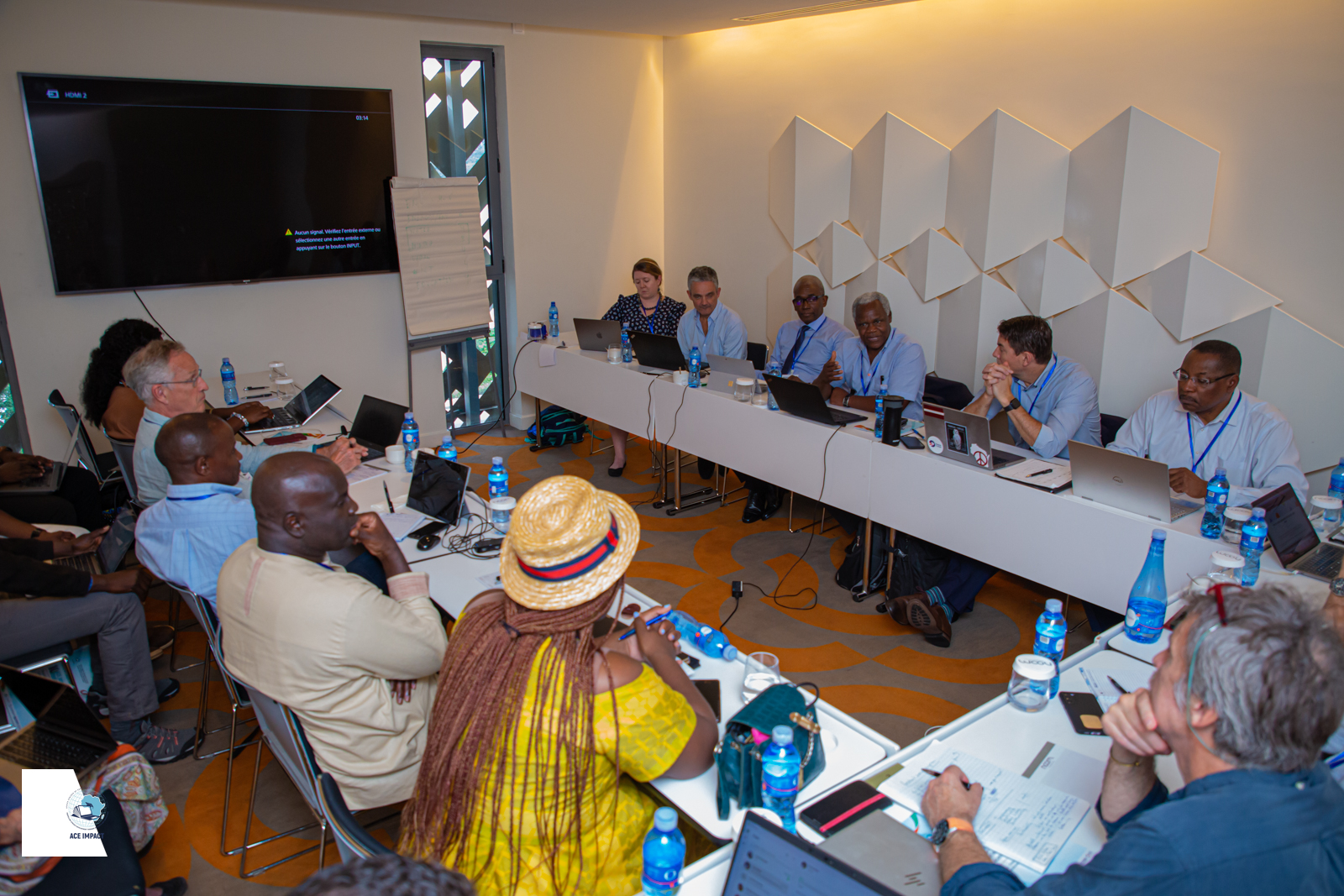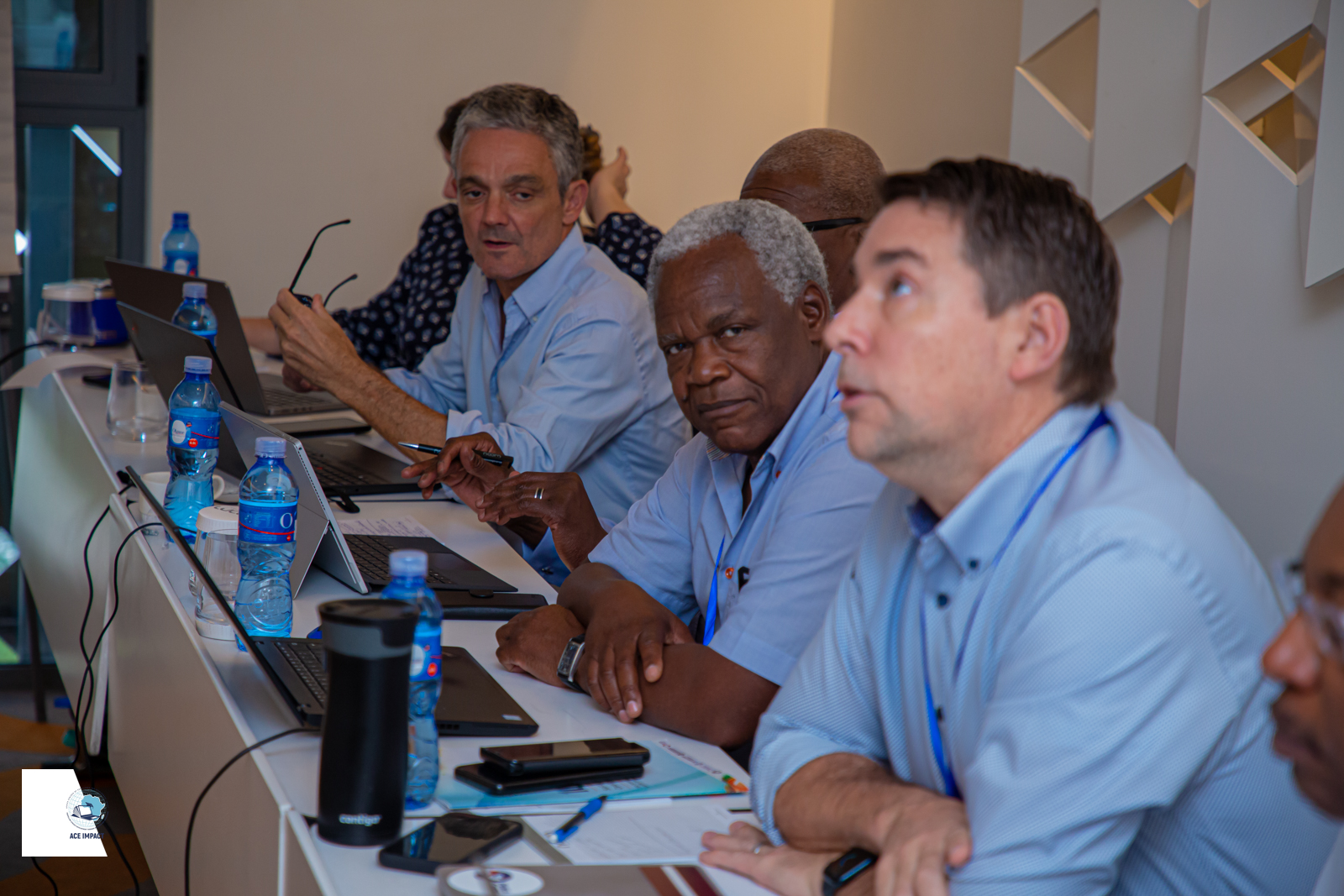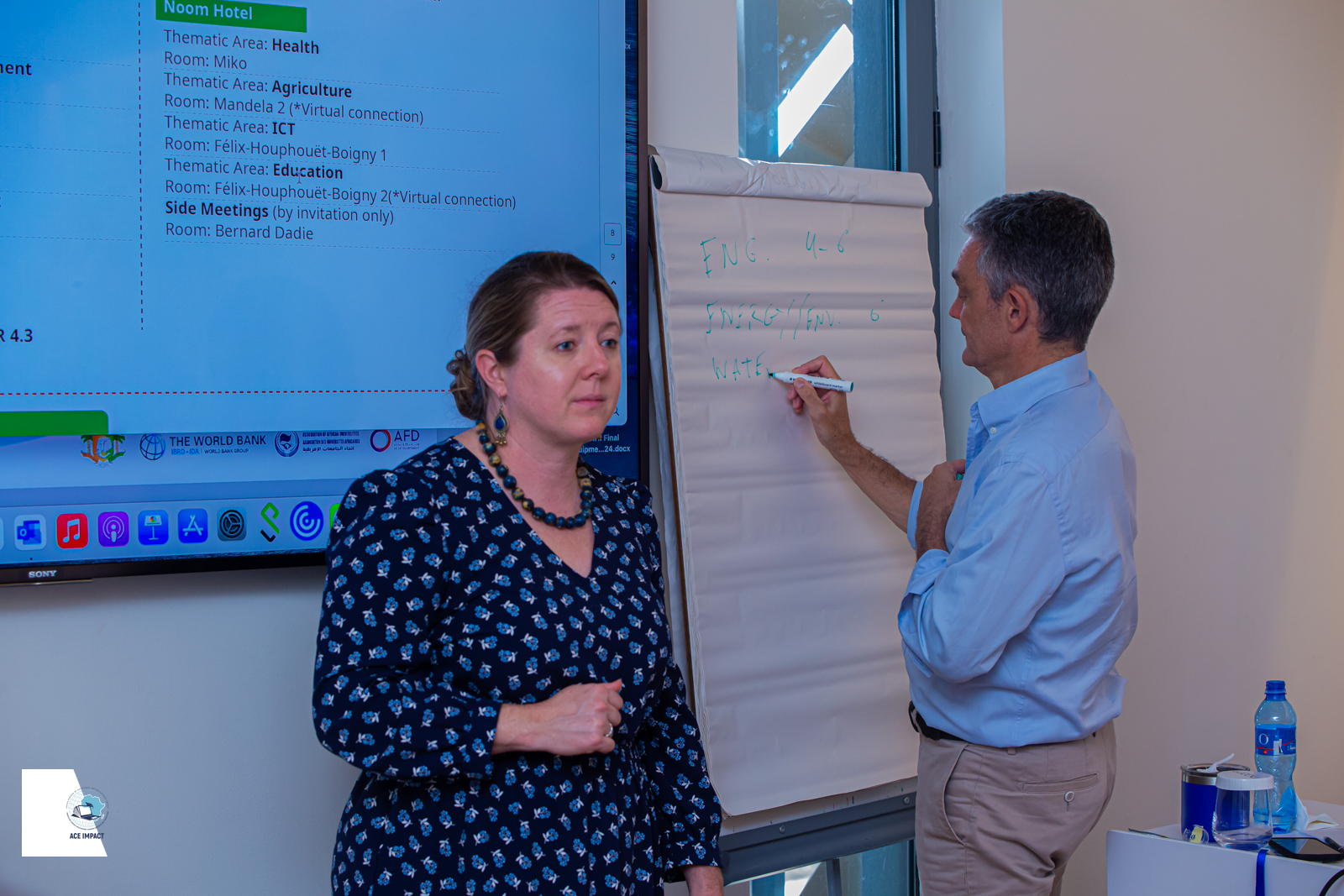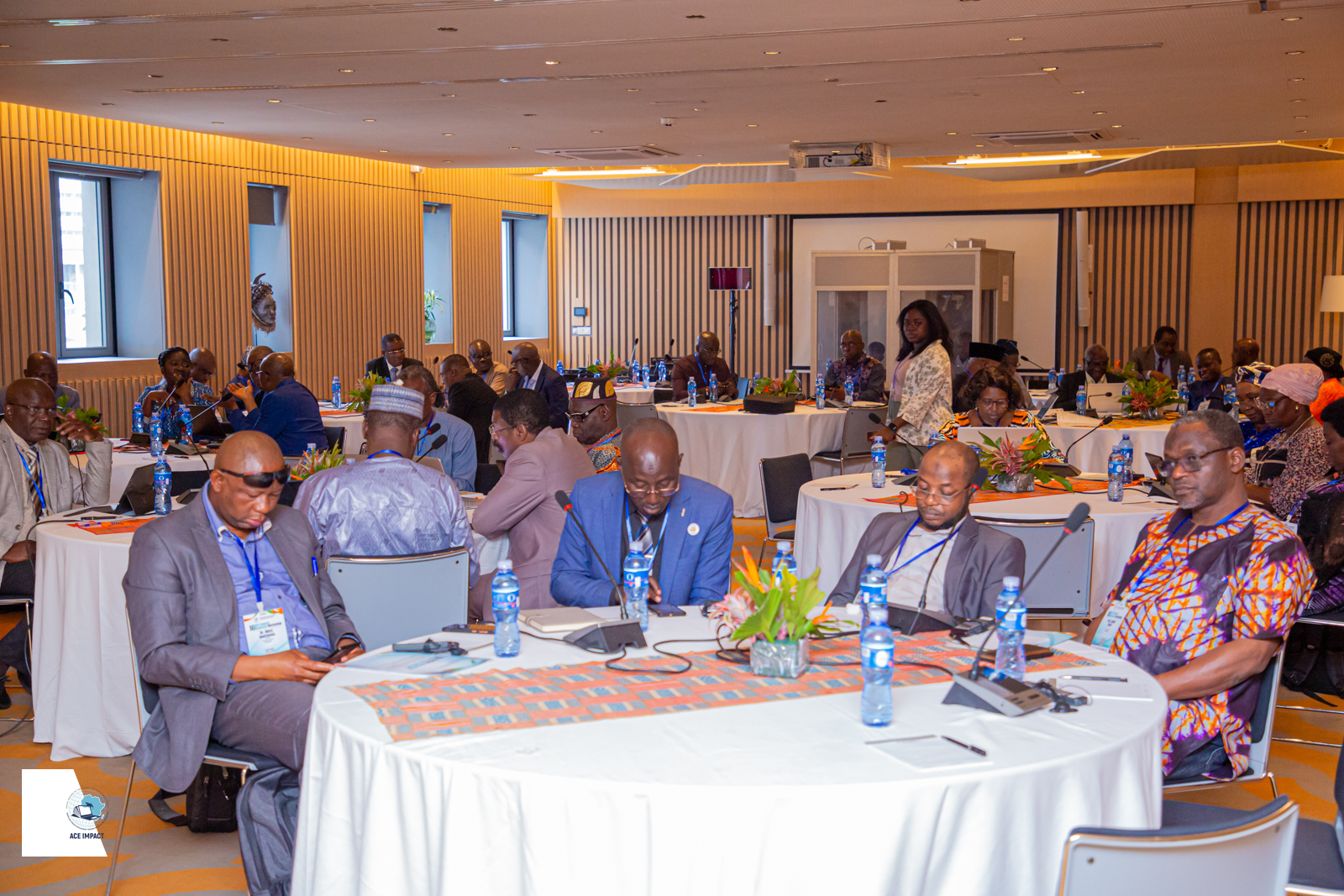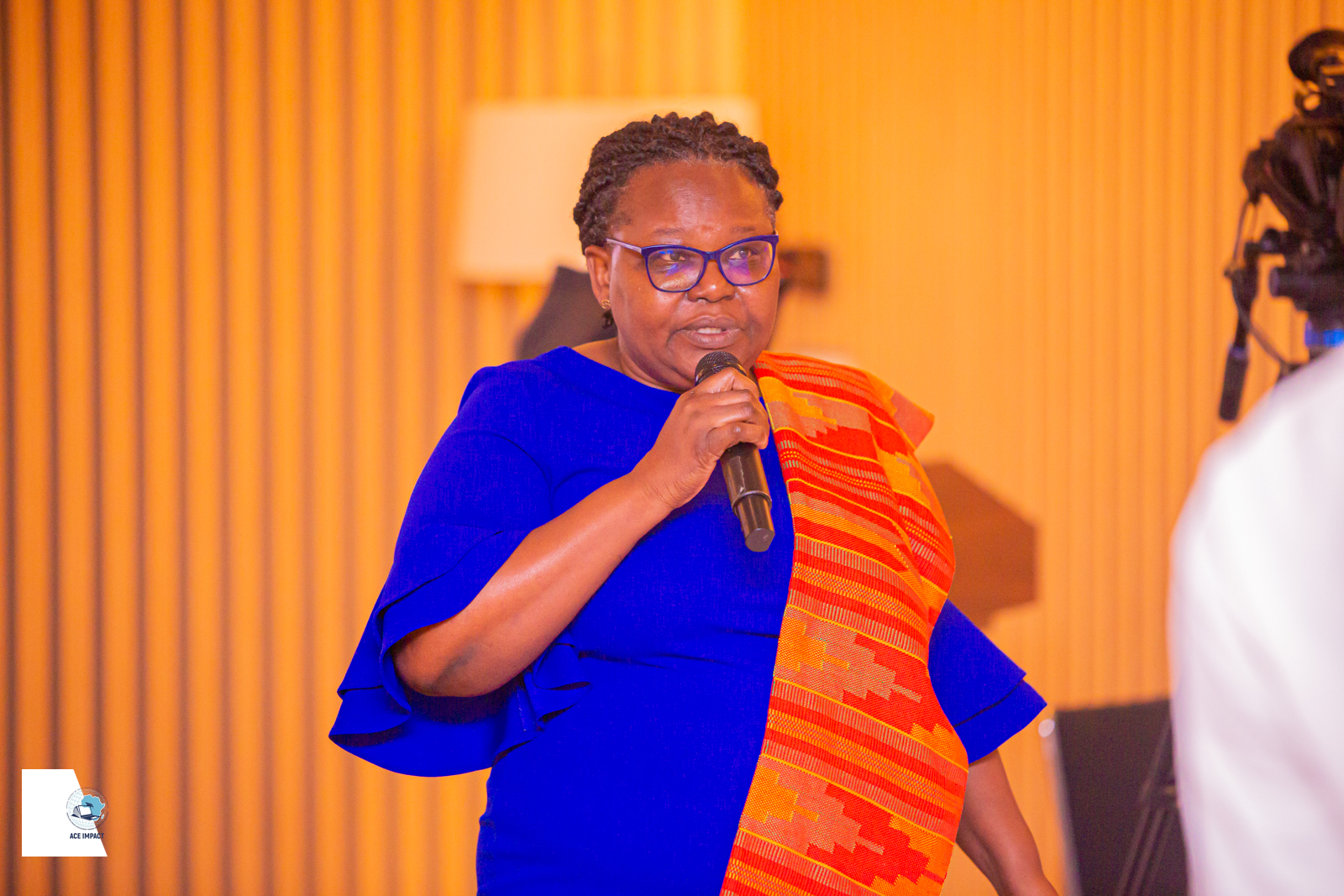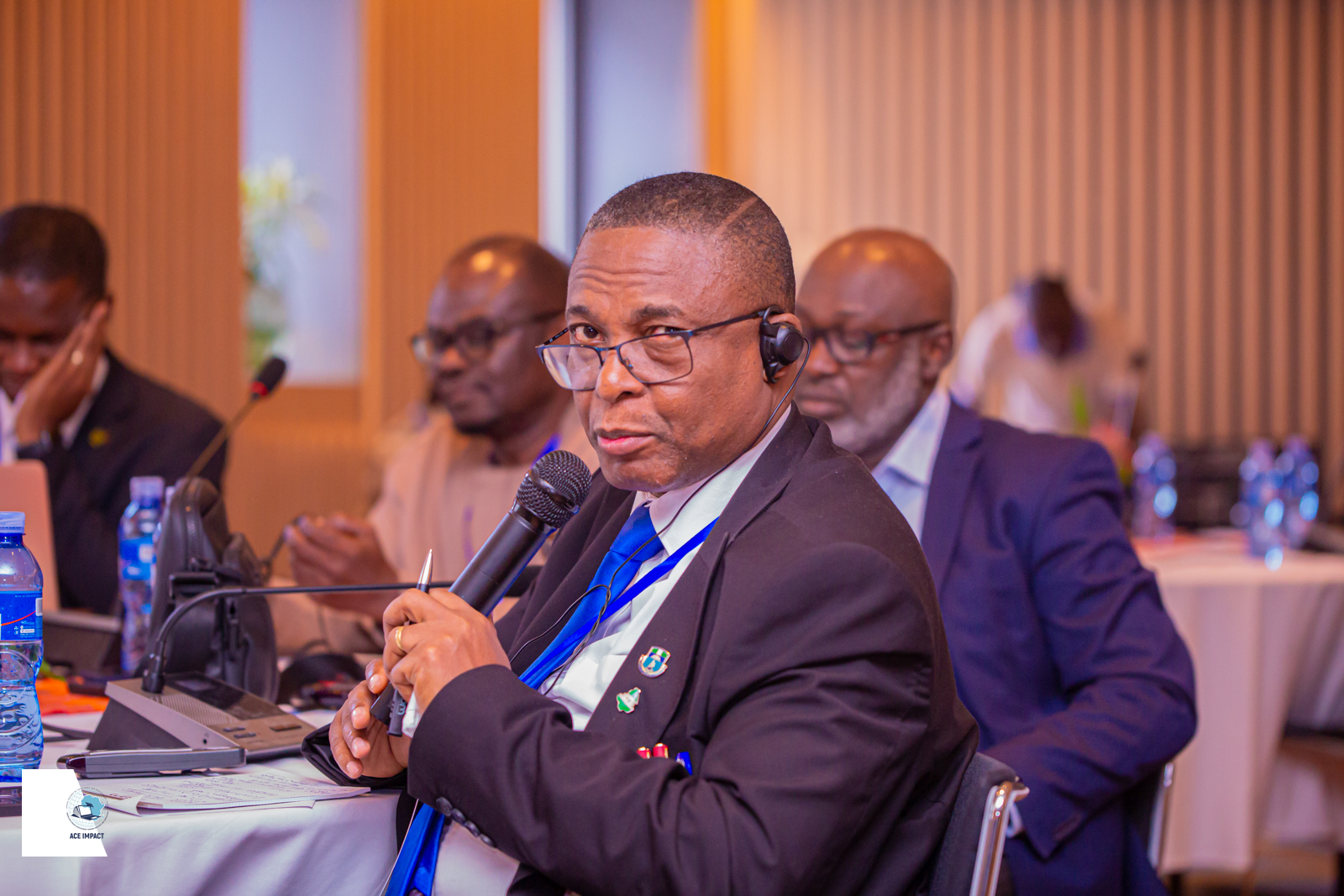ACE Impact Project Concludes 11th Regional Workshop Highlighting the Importance of Sustainability and Future Partnerships
The Africa Higher Education Centers of Excellence for Development Impact (ACE Impact) project concluded its 11th Regional Workshop on April 30th, 2024, following a two-day virtual workshop. Dr. Namrata Tognatta, Senior Education Specialist and ACE Impact Project Task Team Lead at the World Bank, commended the project’s 54 Centers of Excellence during the closing ceremony of the workshop, praising their remarkable achievements and unwavering commitments.
Sustainability in Focus
Dr. Tognatta, emphasized the critical issue of sustainability as the ACE Impact project nears its conclusion. Discussions by stakeholders on the long-term viability of the Centers of Excellence have intensified, leading Dr. Tognatta, to urge all centers to actively pursue initiatives that disseminate project achievements, promote the ACE model, and cultivate sustainable partnerships. She highlighted the importance of setting goals for continued success beyond the project’s current funding duration and encouraged fostering close relationships with diverse stakeholders.
To prepare center leaders and key officials for continued success, Dr. Tognatta, highlighted the need to prioritise capacity building and intensify efforts in key areas that focus on project sustainability, operational support, environmental and social safeguards, and monitoring and evaluation among others.
Dr. Ekua Bentil, Senior Education Specialist at the World Bank Group, highlighted the potential for continued support during the workshop. She mentioned that achieving project development goals could position the centers favorably for the World Bank’s next phase of engagement in African higher education. Dr. Bentil encouraged all Centers of Excellence to submit reports on their project results on student enrolment, national accreditation status, international program development, and institutional accreditation.
ACE Impact Result Verification Updates
The 11th ACE Impact Regional Workshop served as a platform for representatives from the World Bank and the Association of African Universities (AAU) to share updates on project results verification. This rigorous process ensures that funding allocated to the Centers of Excellence is directly tied to the achievement of specific goals.
The update, led by a team of specialists – Mrs Adeline Addy (Monitoring and Evaluation Specialist, AAU), Mr Harry Crimi (Education Consultant, ACE Impact Core Team, World Bank), and Ms Wuraola Monsuro (Education Consultant, Education Practice for Western and Central Africa) – focused on the first round of verifications conducted from January 2024 to April 2024. This round assessed a wide range of areas crucial to the project’s success, including student enrollment, program accreditation, research publications, civil works, external revenue, fiduciary Management, institutional impact and others.
The verification process for student enrolment and internships (DLRs 3.1-3.4, 5.2) extended over a considerable period, from November 2023 to April 2024. To ensure data accuracy, a verification survey launched in January achieved an impressive response rate of 87%. A total of 7,128 students and interns participated. Following verification, 65% (4,668) were confirmed, paving the way for funding disbursement to be approved for 56% (4,002).
The professional short courses (DLR 3.3) category recorded strong performance, with over 90% (856 students) of the 944 submitted for verification being approved for payment. This highlights the effectiveness of these programs in reaching a wider audience.
Program accreditation (DLR 4.1) results also yielded positive outcomes. Out of 16 verified results, 15 were successfully approved. These included a mix of three international, one regional, and three national program accreditations.
Within the reporting period, the project received over 1,000 publications for verification under DLR 4.2 (Research Publications). Notably, 834 were deemed eligible, with approximately 73% published in prestigious Scopus-indexed journals. Ultimately, 479 publications were approved by the project.
One of the critical disbursement linked indicators for the project is Civil Works (DLR 4.3). Between January and April 2024, 29 milestones from 20 different centers were submitted for verification. While 26 were approved, 3 were deferred for further review. It was recommended that centers of excellence verify completion against approved formulations before requesting verification and that all milestones are expected to be completed and verified by December 2024.
Despite being funded by the ACE Impact Project through the World Bank, it is crucial for the centers to generate external revenue to ensure their long-term sustainability. Between January and April 2024, the centers collectively generated USD 636,542 from various sources and initiatives. While this demonstrates progress, only 36 out of 53 centers achieved 100% of their revenue targets. The majority of this funding (66%, USD 420,538) came from regional sources, with the remaining 34% (USD 216,004) coming from national sources. The challenges of achieving revenue targets and facilitating separate external audits solely for validating this indicator were identified as areas requiring further attention.
The verification updates also highlighted concerns regarding entrepreneurship development (DLR 5.3). Twelve centers submitted results, with the Africa Centre of Excellence on Technology Enhanced Learning (ACETEL) in Nigeria and the Center for Training, Research, and Expertise in Pharmaceutical Sciences (CEFOREM) in Burkina Faso achieving their targets. The remaining centers were encouraged to accelerate implementation and submit their results for verification.
In relation to Fiduciary Management (DLI 6), it was noted that all centers submitted their Interim Financial Reports(IFRs) on time. Noteworthy is the accomplishment on DLR 7.1, focusing on regional strategies, where all institutions achieved 100% completion. For universities assigned to this DLR, all 31 regional strategy documents were verified and approved.
So far, 11 institutions were highlighted as being eligible for DLR 7.2 (Open & Competitive Selection), with nine submitting results. Université d’Abomey Calavi is awaiting the submission of some support documents, while Université Gamal Abdel Nasser de Conakry awaits relevant government laws for implementation.
Under DLR 7.3 (Institutional Accreditation), 24 out of 33 institutions completed gap assessments with international accreditation agencies, marking a significant improvement from the previous reporting period. Institutions yet to reach this milestone were encouraged to expedite their efforts within the next three months. Those experiencing delays in accreditation were advised to seek further assistance from the Regional Facilitation Unit (AAU), and the World Bank.
All institutions involved in DLR 7.4 (PASET Benchmarking) successfully completed the first phase of the PASET benchmarking. Currently, they are finalizing phase 2, which involves evaluating invention plans, with the submission of benchmarking indicators underway.
The verification updates also covered DLR 7.5 (Institutional Impact). While 22 out of 65 milestones (34%) have been achieved, with corresponding earnings disbursed, approximately five universities were identified as lagging. These institutions were urged to expedite their progress towards achieving this disbursement linked indicator (DLI). To support them, the AAU and the World Bank have implemented interventions like one-on-one meetings, progress tracking, and individual clinics to fast-track implementation
DLR 7.6, focusing on Enhanced Digital Infrastructure and Networking Capacity, has shown significant progress in Nigeria. Most universities have received 100% of their allocated funds, with one university being the exception. To address this, the World Bank and the AAU are working closely with the university to prepare for the upcoming third round, scheduled for the end of June 2024.
To ensure a smooth and transparent verification process, the ACE Impact Project has established a detailed calendar outlining deadlines for different DLR categories. The breakdown of the key timelines is as follows;
- Results for Student Enrolment, Short Courses & Research (DLRS 3.1, 3.4, 4.2 & 5.2) are expected to be submitted between 5-26 August 2024 and the verification surveys would be launched on 11th September 2024.
- The disbursement linked results (DLRS) for 3.3, 4.1 & 5.1 are to be submitted as and when they are achieved, and verifications are completed within 5 days of submission. The months for dispatching the verificaton letters are June and December 2024.
- The disbursement linked results 6.1-6.4, involving interim financial reports and audit reports are expected between 18 July to 12 August 2024. Verification of these results will be undertaken from 15 August to 1 September 2024 – with verification letters being sent out on 30th September 2024.
- The disbursement linked results for 2.2, 4.3, 5.3, and 7.1-7.6 can be submitted as and when the results are achieved. Verification for these DLRs will e done between June and August 2024.
ACE @10 Celebrations
The Africa Centers of Excellence program, with a ten-year history of supporting Centers of Excellence and enhancing the quality of postgraduate education in the sub-region, launched its anniversary to celebrate a decade of its impacts and interventions in Abidjan, Cote d’Ivoire, in 2023 during the 10th Regional Workshop, setting the stage for the main event. Dr. Namrata Tognatta of the World Bank announced that the ACE @10 Celebrations would be tentatively scheduled for September 2024, strategically coinciding with the 12th ACE Impact Regional Workshop. To commemorate this milestone, Dr. Tognatta encouraged all Centers of Excellence to organize country-level ACE @10 celebrations and undertake communication activities leading up to the main event.
During the 11th ACE Impact Regional Workshop, the ACE Impact Senior Project Manager, Dr. Sylvia Mkandawire presented a briefing on the planned ACE International Partnership Workshop, which was scheduled to be held in Mauritius from May 8th to 10th, 2024. In her presentation, she indicated that the workshop was aimed at fostering collaboration between African and European higher education institutions and other related stakeholders. The international partnership workshop was targetted at convening Center Leaders, Vice chancellors of host universities, project steering committee members, industry and global partners and other key African Higher Education stakeholders.
The 11th ACE Impact Regional Workshop was a great success, achieving all its objectives. These included reviewing progress towards achieving various disbursement-linked indicators, providing technical and operational support to address specific challenges at the center and country levels, and identifying immediate action items focusing on procurement, civil works, and fund utilization. Additionally, updates were given on the ongoing and upcoming rounds of results verification and disbursements scheduled for April and June 2024. The workshop also included a briefing for the African Centers of Excellence International Partnerships Workshop and continued to offer guidance and oversight to the regional facilitation unit (RFU) of the ACE Impact project, hosted by the AAU.
